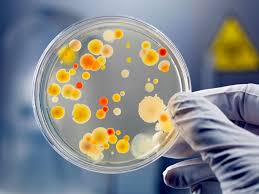MICROBIOLOGY
Introduction
Microbiology is the study of microorganisms and infectious agents that are too small to be seen with the naked eye. This includes bacteria, fungi and algae. Viruses, though not strictly classed as living organisms, are also studied. Microbiology is a broad discipline which covers a number of important areas like virology, mycology, parasitology, bacteriology etc… Although some of the microbes are the cause of infectious diseases but they are also necessary for the production of bread, cheese, antibiotics, vaccines, vitamins, enzymes and many other important products and processes.
Nature of Work
Microbiologists
- Focus on understanding, managing, and improving soil and water resources.
- Investigate the growth, structure, development, and other characteristics of microscopic organisms and their relationship with their environment.
- Observe action of microbes on living tissues of plants, animals and on dead organic matter.
- Study the structure and function of human, animal and plant tissues, cells, pathogens and toxins.
- Examine physiological, morphological, and cultural characteristics, using microscope, to identify and classify microorganisms in human, water, and food specimens.
- Isolate and maintain cultures of microorganisms in prescribed or developed media, controlling moisture, aeration, temperature, and nutrition.
- Observe action of microorganisms upon living tissues of plants, higher animals, and other microorganisms, and on dead organic matter.
- Work in a number of areas such as Medical, Agriculture, and Industry etc….
- Medical microbiologists inspect the role of micro-organisms in human and animal diseases and try to find ways to prevent and cure these diseases.
- Agricultural microbiologists investigate the role of micro-organisms in soil fertility and spoilage of farm products and plant diseases caused by microbes.
- Those working in the industry use micro-organisms to produce such products as amino acids, alcoholic beverages, antibiotics, citric acids, and Vitamin C.
- General Microbiologists study the basic features of micro-organisms, including ecology, genetics, metabolism, physiology and structure.
- An emerging field is marine microbiology which focuses on the vast number of micro-organisms in the oceans.
Microbiologists work in laboratories located in research organizations, hospitals, food and beverage industries, and pharmaceuticals firms.
|
Education |
Admission Requirements |
|
|
B.Sc. M.Sc. BS MS/ M.Phill (if BS/M.Sc.) Ph.D. |
2 Years 2 Years 4 Years 2 Years 3-5 Years |
|
|
Qualities Required |
Job Opportunities |
|
|
|
|
Views: 63494







